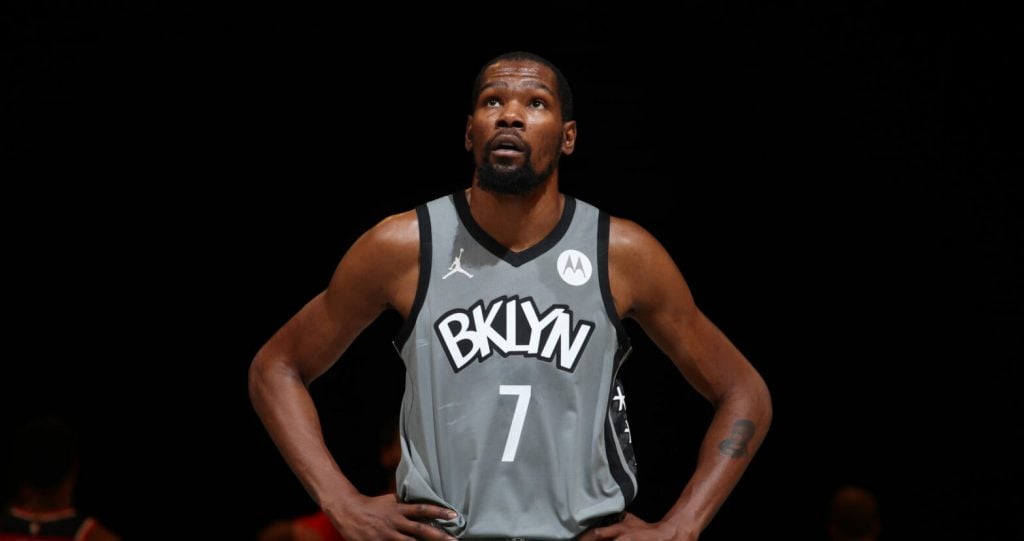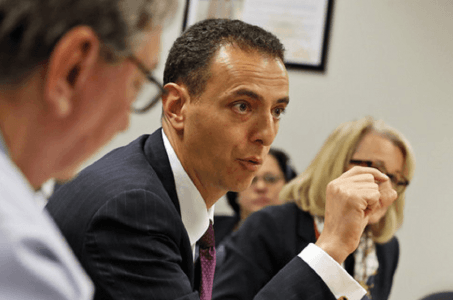New York Sports Betting Operators May Soon Be Announced, Tax Rate Likely 51%
Posted on: November 3, 2021, 02:27h.
Last updated on: November 3, 2021, 05:36h.
New York state gaming officials may reveal perhaps as early as this week who wins contracts to operate mobile sports betting applications in the state, according to a report.

The New York Post indicated Tuesday at least two of the six bids will be awarded contracts. One bid includes mega-operators BetMGM, DraftKings, and FanDuel. Those three partnered with Bally Bet on their submission.
The other proposal reportedly accepted is led by sports betting platform provider Kambi. Operators involved are Rush Street Interactive, Caesars Sportsbook, Wynn Interactive, PointsBet, and Resorts World.
Another Kambi proposal that included Penn National Gaming’s Barstool Sportsbook, along with online retailer and aspiring sportsbook Fanatics, reportedly did not receive the same documents to sign as the other groups, The Post reported, citing an anonymous source.
In August, the New York State Gaming Commission received bids from six individual sportsbooks or groups. Other submissions came from bet365, FOX Bet, and theScore Bet.
According to the request for proposal solicitation the state released in July, applicants selected for licensure would take place before Dec. 6. The licenses would be conferred at the ensuing commission meeting.
The Gaming Commission’s website as of Wednesday afternoon does not show when the next meeting will take place. However, the source told The Post that sports betting apps would likely be available by February’s Super Bowl.
That’s a timeline that state Sen. Joseph Addabbo, D-Queens, was pushing, as lawmakers and then-Gov. Andrew Cuomo negotiated mobile sports betting into the budget passed in April.
High Tax Rate in New York
Two weeks ago, the Gaming Commission established the final tax matrix using rates proposed by bidders. The matrix established various rates based on the number of platform providers and operators selected.
If the state went with just the minimum requirement of two or more platform providers and a total of four operators, the tax rate would have been 64 percent.
Based on information from The Post’s source, the combination of eight platform providers and nine operators would be taxed at 51 percent. If the total number of operators picked falls between 10 and 12, the rate would be 50 percent.
Such a high percentage would put New York in the same company as New Hampshire, which awarded its licenses in a similar but less complex fashion. The lowest tax rate possible in New York’s matrix was 35 percent, and that was only possible if the state licensed all or nearly all of the applicants.
A 50 percent or higher rate was part of Cuomo’s plan for mobile sports betting. In previous years, the former governor was cool to the idea of establishing mobile sports betting in the state. It wasn’t until the COVID-19 pandemic, which led New York to face massive budget deficits, that Cuomo felt compelled to consider the opportunity.
However, rather than follow the leads of most states and set up licenses through existing casinos, the then-governor wanted to see sports betting operate like the lottery. In that, he meant that the state would contract directly sports betting operators. Those operators would propose the tax structure, and Cuomo wanted at least half of the revenues, if not more.
Cuomo resigned in disgrace in August because of a sexual harassment scandal and several ongoing investigations shortly after bids were submitted. It was then predicted the state could receive up to $500 million in revenue from sports betting.
Sports Betting Licenses to Cost $25 Million
The high tax rate won’t be the only way the state generates revenue through sports betting. Nor will it be the only cost for providers.
The RFP process calls for each platform provider to pay $25 million for a license. Based on The Post’s report, the two bids set to win contracts would each have four platform providers. That would give New York $200 million in revenues.
In exchange for the 51 percent tax, platform providers will also receive a 10-year license to operate in the state. Had the rate dipped below 50 percent, the $25 million license would only have covered up to five years.
In addition, the state’s four upstate casinos are in line to receive $5 million each for hosting sportsbook servers. That $20 million total will be divvied up among the winning platform providers. It’s also in addition to the “reasonable and actual costs” the providers incur in operating the servers.
The state designed the RFP to reward bidders that agreed to high tax rates. However, not all public officials wanted the state to go that route.
After the state released the final tax matrix, Assemblymember Gary Pretlow, D-Mount Vernon, urged officials to approve all applicants. Pretlow chairs the Assembly’s Racing and Wagering Committee.
New York received bids from a large number of well-qualified companies, and I think it would be a mistake for us to limit the market to a few participants when we have the opportunity to have so many companies competing to provide New Yorkers with the best experience,” he tweeted on Oct. 21.
With a population of more than 19 million, New York will be the most populous state to offer licensed sports betting applications. When it goes online, it’ll also likely become the top state in terms of handle and revenue.
Related News Articles
Most Popular
FTC: Casino Resort Fees Must Be Included in Upfront Hotel Rates
Genovese Capo Sentenced for Illegal Gambling on Long Island
NBA Referees Expose Sports Betting Abuse Following Steve Kerr Meltdown
UPDATE: Former Resorts World & MGM Grand Prez Loses Gaming License
Most Commented
-
UPDATE: Whiskey Pete’s Casino Near Las Vegas Closes
— December 20, 2024 — 30 Comments -
Caesars Virginia in Danville Now Accepting Hotel Room Reservations
— November 27, 2024 — 9 Comments -
UPDATE: Former Resorts World & MGM Grand Prez Loses Gaming License
— December 19, 2024 — 8 Comments -
FTC: Casino Resort Fees Must Be Included in Upfront Hotel Rates
— December 17, 2024 — 7 Comments
















No comments yet